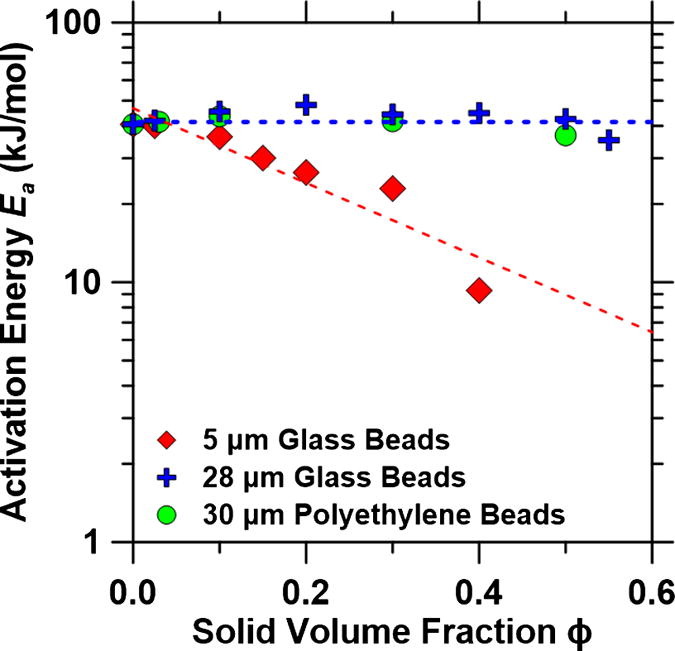Citation
Timmons, J.; Falzone, G.; Balonis, M.; Bauchy, M.; Sant, G. Journal of colloid and interface science, 2018, 530, 603-609.
Timmons, J.; Falzone, G.; Balonis, M.; Bauchy, M.; Sant, G. Journal of colloid and interface science, 2018, 530, 603-609.
Hypothesis
In suspensions, the activation energy of viscous flow is an important property that controls the temperature dependence of the viscosity. However, the differentiated roles of the properties of the liquid phase and the structure of the solid particles in controlling the activation energy remain unclear. We propose here that particle fractal structuring yields an anomalous behavior in the activation energy of viscous flow.
Experiments
The rheology of two series of suspensions consisting of glass beads suspended in poly(1-decene) was investigated over a wide range of solid volume fractions (0.00 ≤ φ ≤ 0.55). These suspensions were characterized by their viscosity (η, Pa∙s) via shear rate sweeps and by their yield stress (Pa) via oscillatory amplitude sweeps.
Findings
Interestingly, for suspensions consisting of nominally smaller particles (d50 ≈ 5 µm), we observe an anomalous decrease in the activation energy (Ea, kJ/mol) of viscous flow with increasing solid fraction. Based on oscillatory rheology analyses, it is suggested that such anomalous behavior arises due to entropic effects that result from the formation of fractally-architected cooperatively rearranging regions (i.e., agglomerates) in the suspension.
